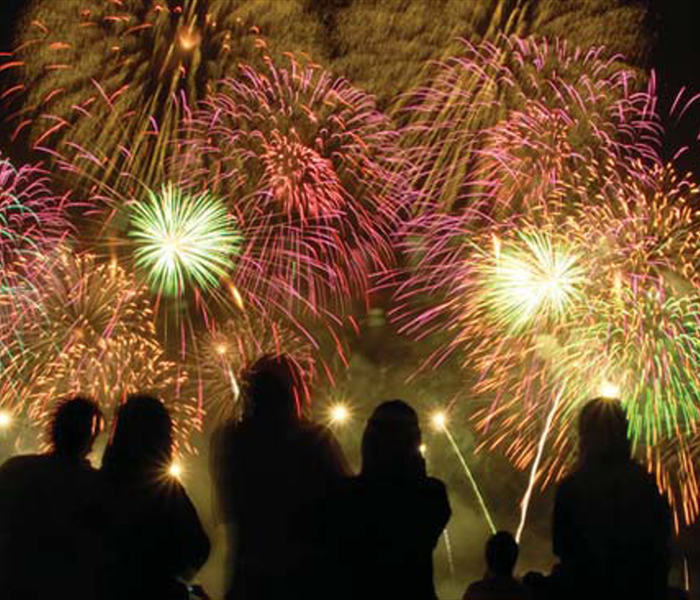CELEBRATE SUMMER SAFELY
7/8/2016 (Permalink)
Summer is synonymous with barbecues, parades and fireworks displays; but along with all the festivities are plenty of visits to emergency rooms—especially during July.
Each year, around 230 people are injured badly enough to require medical treatment after fireworks-related incidents, according to the U.S. Consumer Product Safety Commission. In addition to causing injury, fireworks are also responsible for thousands of house fires each year with millions of dollars in property damage.
There is nothing like firing up the grill during the summer months! Did you know, July is the peak month for grill fires? A backyard barbecue can become dangerous quickly if proper safety precautions aren’t considered. SERVPRO® of Wayne wants you to have an enjoyable and safe summer. Consider the following tips to help ensure your summer celebrations are disaster-free!
- Propane and charcoal BBQ grills should only be used outdoors.
- The grill should be placed well away from the home, deck railings and out from under eaves and overhanging branches.
- Keep children and pets away from grill area.
- Keep your grill clean by removing grease or fat buildup from the grills and in trays below the grill.
- Never leave your grill unattended.
- When using a charcoal grill, let the coals completely cool before disposing in a metal container.
- Anyone using fireworks or standing nearby should wear protective eyewear.
- Do not try to re-light or handle malfunctioning fireworks. Keep a bucket of water nearby to fully extinguish fireworks that don’t go off or in case of fire. Children should never pick up fireworks that may be left over as they may still be active.
- The safest way to enjoy fireworks is to attend a public display conducted by trained professionals.
CELEBRATE SUMMER SAFELY
Firework Facts
- Fireworks cause an average of almost 20,000 reported fires per year.
- In 2013, sparklers caused 41% of fireworks injuries.
- On Independence Day in a typical year, fireworks account for two out of five of all reported fires, more than any other cause of fire.
*Most recent statistics available—provided by the NFPA.






 24/7 Emergency Service
24/7 Emergency Service
